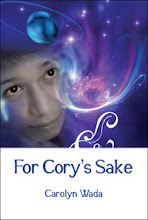On July 23, a 6-year-old boy was found dead on the floor of his home, with "multiple bruises, to his face, arm, chest, back, wrist and elbow [and feet]."
In both cases, the children were examined by doctors just days or a few weeks before their life-threatening injuries were sustained.
The infant, Jack Koller, was taken to a hospital a few days after a July 9 fall from a changing table, after his mother found blood in his mouth. Doctors diagnosed a torn frenulum, a cut in the connective tissue between the baby's lip and gums. Jack was sent home with his parents (who had not reported the fall). A few days later he was hospitalized with severe brain damage.
Looking back, former [Boulder County] prosecutor Colette Cribari, says that a torn frenulum "is a 'classic' sign of infant abuse," a red flag that many doctors nevertheless miss.
In the case of 6-year-old Dae'von Bailey, on at least two occasions the boy himself reported abuse to school and social workers. Dae'von's most recent report was on June 3, when he told social workers he had been punched in the stomach. The examining doctor reported "no signs of physical abuse," "no concerns," and the report was determined "unfounded." On July 23, Dae'von was found dead.
There is one message that rings out clearly to me, from these two "cases": doctors who examine children need to be trained in recognizing the signs of abuse. Two-month-old Jack is pre-verbal, but (as they say on the forensic dramas), his body was speaking, telling a "classic" tale of ongoing abuse and waving a red flag.
In Dae'von's case, the child himself reported his abuse on at least two occasions. Social workers showed up two weeks after Dae'von's April 27 report that his guardian had shoved him into a sink, injuring his nose. After Dae'von's June 3 report, he was examined by a private practice doctor who found no signs of abuse.
Dae'von resided in Los Angeles County, which has six county-run facilities staffed by "forensic pediatricians and other experts trained to spot abuse." Unfortunately, Dae'von, despite his reports, was never referred to one of these county facilities.
Getting a possibly abused child (promptly) to a forensic pediatrician or other expert requires an investment of attention, time and resources. Training emergency room doctors in the signs of abuse requires an investment of attention, time and resources. It is an investment I believe we must make. This investment will rescue many children from torture and save many lives. We are investing billions of dollars into disease research. This is good, let's keep it up. But violence is a bigger killer of young American children than any disease. Let us invest in the life-saving measures of training doctors to recognize the symptoms of abuse, and getting possibly abused children to the proper "specialists," as we definitely would with a child with cancer, diabetes etc.
I would like to know who is doing what, about this. If you know of a county or other unit that has a system for training doctors in the signs of child abuse, or a system for getting children to trained doctors after reports of abuse, please leave me a comment.
Jack Koller's story was drawn from this news article:
Dae'von Bailey's was drawn from this news article:
Both children's stories came to my attention via @BraveKidsVoices. I admire this Twitter user's dedicated focus on getting kids heard. And whether a child is pre-verbal with only injuries to tell his tale, or a brave little person trying to tell it himself, let's hear them, amplify their voices, and do what needs to be done to put a happier ending on each of their stories.




Both of the stories are truly nauseating and COULD HAVE BEEN PREVENTED! I, unfortunately, don't know of any agency doing anything at all about this and am struggling to find a way to help myself.
ReplyDeleteSuch tragic stories. It saddens me to no end to think anybody, let alone parents of a child, could hurt such sweet innocent souls. I hope and pray there are programs in place re: training and intervening, although I'm not aware of such.
ReplyDeleteThank you, Carolyn, for this post. We should never forget the little ones who many times can't speak for themselves.